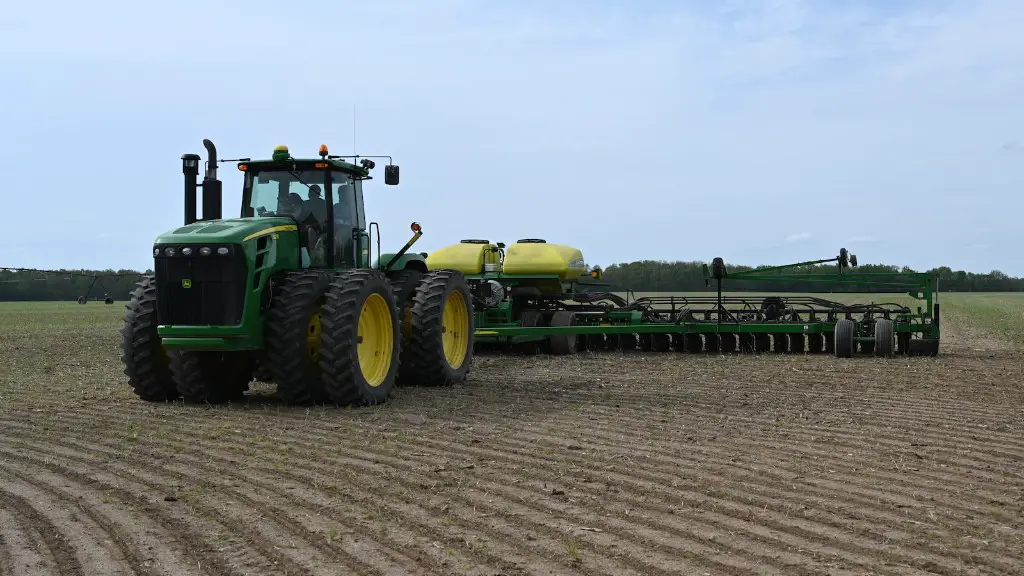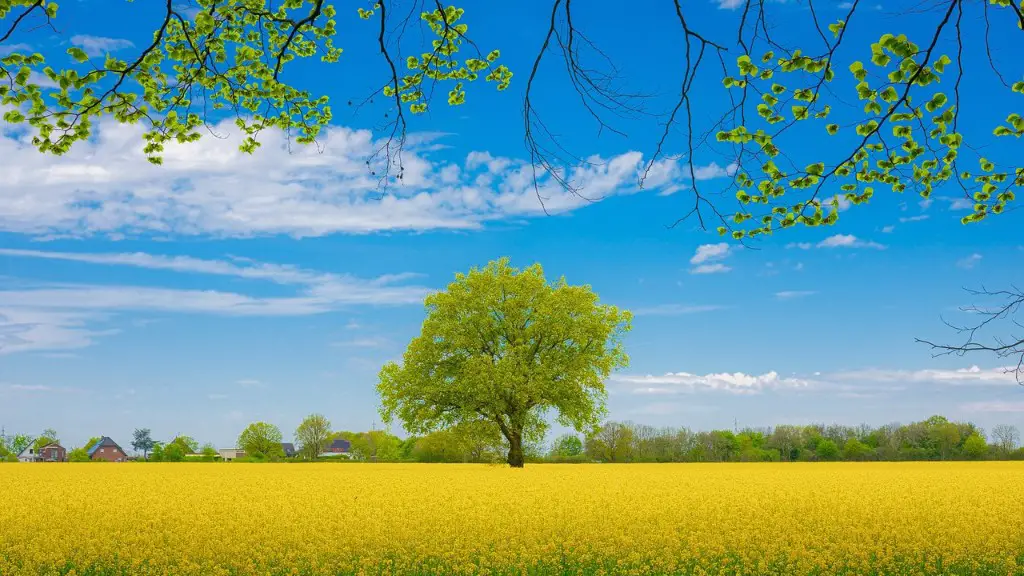Agriculture is one of the oldest and most important industries in the world. It is the process of producing food, feed, fiber and other products by manipulating the growth of plants and animals. Agriculture is responsible for feeding the world’s population, and it plays a vital role in the global economy.
There are many reasons why agriculture is important. Agriculture is the main source of food for humans and animals. Agriculture is also responsible for the production of other important products like clothing, fuel, and building materials. Agriculture plays a significant role in the economy and provides employment for a large number of people. Additionally, agriculture is important for the maintenance of the environment.
What was the importance of agriculture?
Agriculture is the foundation of many societies and continues to play a vital role in social and economic development. It supports livelihoods through food production, provides raw materials for a variety of industries, and helps to build strong economies through trade. Agriculture also plays an important role in conserving natural resources and protecting the environment.
Agriculture provides food, clothing, and shelter. It helps people to enjoy a higher quality of life. Agriculture also provides employment opportunities for people. It is a major source of income for many countries.
What is the most important in agriculture
Agriculture is the source of the world’s food supply. No matter where or what you are eating, the ingredients in your meals came from somewhere. All roads lead to agriculture.
Farming is a great way to improve your health and wellbeing. It is challenging and stimulating work which can provide a source of income in rural areas. Farm work can also help develop younger generations by teaching them new skills. Farming can also help the environment thrive by providing healthy food and products.
What is the positive impact of agriculture?
Agriculture can have both positive and negative impacts on the environment.
Negative impacts can include pollution and degradation of soil, water, and air.
Positive impacts can include trapping greenhouse gases within crops and soils, or mitigating flood risks through the adoption of certain farming practices.
Agriculture plays an important role in the economic growth and development of a country. As the provider of food, it is a cornerstone of human existence. As a furnisher of industrial raw materials, it is an important contributor to economic activity in other sectors of the economy.
Agriculture sector is the backbone of the Indian economy. The sector provides employment to a large section of the population and is a major source of livelihood. The sector also contributes significantly to the country’s GDP.
The Indian agriculture sector is characterized by a wide variety of crops, which are grown in different agro-climatic regions. The sector is also a major provider of raw materials for the country’s industries.
The sector is facing several challenges at present, which include declining productivity, high input costs, climate change, water scarcity and soil degradation. However, with proper policies and investments, the sector has the potential to become a major driver of economic growth and development.
What are the 10 benefits of agriculture?
Agriculture is extremely important in Nigeria for a variety of reasons. Firstly, agriculture is responsible for the production and provision of food for human consumption. Secondly, agriculture provides raw materials for a variety of industries. Thirdly, agriculture employs a large amount of the labour force in Nigeria. Fourthly, agriculture protects the environment by preserving soil and water resources. Fifthly, agriculture helps to preserve species by providing habitat and food resources. Sixthly, agriculture is a major source of foreign exchange for Nigeria. Seventhly, agriculture boosts exports by providing exportable commodities. Eighthly, agriculture is a major source of subsistence for many people in Nigeria. Ninthly, agriculture contributes to economic growth and development. Finally, agriculture plays an important role in social and cultural life in Nigeria.
The rise of agriculture led to the development of cities and civilizations. Crops and animals could be farmed to meet the demands of the growing population. Today, the global population has reached over seven billion people.
Farm families often feel a great sense of achievement and fulfilment through the work that they do. They can see the positive effects that their work has on the people who spend time on the farm, and they know that they are making a difference in the lives of individuals. This can be especially rewarding for those who come from typically excluded groups, as they can feel that they are helping to become more included in society.
Agricultural operations are a critical part of preserving and restoring the Earth’s habitats. when they are managed sustainably, they can help improve soil health and water quality while also protecting watersheds.
How agriculture change the life?
Agriculture has definitely had a huge impact on human civilization. It has allowed us to settle down in one place instead of being nomadic, and to grow our own food instead of having to gather it. This has led to a huge increase in population density and the development of cities and civilizations.
When early humans began farming, it allowed them to produce enough food that they no longer had to migrate to their food source. This meant they could build permanent structures, and develop villages, towns, and eventually even cities. Closely connected to the rise of settled societies was an increase in population. This allowed for the development of civilizations and the rise of cultures.
What are 3 things agriculture provides
While most people think of agriculture as simply the farming of crops, it is actually the primary source of raw materials for a wide variety of key businesses. Crops like cotton and jute are used to make fabric, while sugar cane is used to produce sugar, tobacco, and alcohol. Edible and non-edible oils are used in the production of food, cosmetics, and fuels, while polymer production relies heavily on agricultural products like corn and soybeans. In other words, without agriculture, many of the products and materials that we take for granted would not be available.
Sustainable agriculture can help reduce these emissions while still providing food for the growing population. Practices like planting trees to create windbreaks, using cover crops to improve soil health, and implementing water-conservation strategies can all help reduce agriculture’s impact on the environment.
What’s more, sustainable agriculture can actually help mitigate climate change by sequestering carbon in the soil. So, sustainable agriculture is not only important for feeding the world’s growing population, but also for reducing the impact of climate change.
How does agriculture affect the earth?
Agriculture is vital to human life, providing us with food, fiber, and fuel. However, it also has a large impact on the environment. Agriculture can lead to soil erosion, water pollution, and climate change. It can also help reduce CO2 levels, improve air quality, and provide habitat for wildlife.
There are several reasons why people in agricultural societies tend to have a more settled lifestyle than those in other types of societies. One reason is that they live permanently near the land that is farmed, so they don’t have to move around constantly to find new sources of food. Another reason is that farming is a much more reliable source of food than hunting or pastoralism, so people in agricultural societies don’t have to worry about periods of scarcity. Finally, agricultural societies tend to be much more stratified than other types of societies, with a clear division of labor between those who farm and those who don’t. This division of labor makes it difficult for people to change their social status, so they are less likely to move around.
Warp Up
There are many reasons why agriculture is important. One reason is that it is the main source of food for people and animals. Agriculture provides people with a way to grow and raise food. Agriculture is also important for the economy. It provides jobs for people and produces products that people need.
Agriculture is one of the most important sectors of the economy, providing food, fibre and fuel. It is also a major source of employment, particularly in rural areas. Agriculture is responsible for around 10% of global greenhouse gas emissions, but it also has the potential to play a role in mitigating climate change, through activities such as carbon sequestration in soils.





